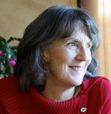Arleen Williams's Blog, page 20
July 2, 2015
Finding Home: Other Voices
Today I'm pleased to welcome Judith Works with her story of returning "home."
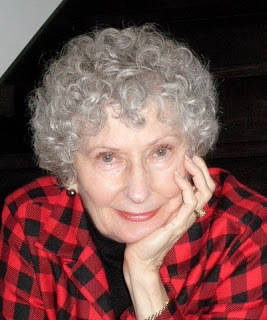
I had reached the United Nations mandatory retirement age. As our last days in Rome sped by I took time to toss some coins into the gushing waters of the Trevi Fountain to ensure a return, even though it would be as a tourist. We had parties with friends. A colleague gave me a small gold pendant depicting Medusa, an ancient Roman symbol for protection. Members of my staff chipped in and presented me with a painting of the Fountain. The movers, with their heavy rolls of paper, finished packing our goods. The last items that went into the crate were a reliquary and old model sailboat with battered sails, chipped paint on the hull and little flags flying on its mast. The boat was my husband Glenn’s, a reminder of his sailing adventures. The antique reliquary, also showing its age with the gilding flaking off, was mine. It was a bust of an obscure saint, Anastasia, who is honored in an old church at the base of the Palatine Hill. The reliquary has a little window in her chest with a compartment behind for a bone or hank of hair. I have often wondered what it might have contained before it ended up in an antique shop waiting for me.
Easygoing Glenn was looking forward to settling in the house we had purchased six months earlier, gardening, taking some cooking lessons, and not having to deal with the difficulties of Roman life. I moped over losing my job, my ItalyWe flew “home,” arriving in early February, the dark and depressed season of Seattle’s bi-polar weather. But my journey was much longer than the flight as culture shock soon set in. I persisted in looking at the clock first thing every morning. If it said six, I knew it was three in the afternoon in Rome. By this time long lunches were concluding with digestivi. I spent days gazing blankly at Puget Sound, still caught between past and future. And I traveled to Vancouver to see my mother whose health suddenly declined. Two weeks after her 95th birthday, and only five months after we returned, she died. It was as if she had been waiting for us to come back before she gave up. Efforts to reconcile with my new life became even more difficult.
But through the veil of grief and disorientation I finally began to see a path leading me to a new definition of home. First, I recognized that the Pacific Northwest, where I had been born and raised, was indeed my home for the rest of my life, and that I must learn to enjoy its many attractions. Next, I found activities to occupy my brain. I began to volunteer for several local groups associated with the arts. And I decided to write. What better way to reflect on all my adventures, to gain meaning from them, and to attempt to convey that meaning to others?
So, finally, I don’t have “Home, Sweet Rome” as a motto any more. I can truthfully say I love the Northwest with its mountains, waters, and lush gardens. And I love living close to my family, and having time to read, to write, and to share a coffee with all the new friends I now have. But I do have to admit that Rome will always have a place in my mind and my heart, the two locations where the real meaning of “home” reside. Judith Works, a graduate of Lewis & Clark Law School, is retired from the United Nations, Rome, Italy. She is the author of a memoir about Rome, Coins in the Fountain, available as an e-book, and City of Illusions, published by Booktrope.
Judith Works, a graduate of Lewis & Clark Law School, is retired from the United Nations, Rome, Italy. She is the author of a memoir about Rome, Coins in the Fountain, available as an e-book, and City of Illusions, published by Booktrope.

I had reached the United Nations mandatory retirement age. As our last days in Rome sped by I took time to toss some coins into the gushing waters of the Trevi Fountain to ensure a return, even though it would be as a tourist. We had parties with friends. A colleague gave me a small gold pendant depicting Medusa, an ancient Roman symbol for protection. Members of my staff chipped in and presented me with a painting of the Fountain. The movers, with their heavy rolls of paper, finished packing our goods. The last items that went into the crate were a reliquary and old model sailboat with battered sails, chipped paint on the hull and little flags flying on its mast. The boat was my husband Glenn’s, a reminder of his sailing adventures. The antique reliquary, also showing its age with the gilding flaking off, was mine. It was a bust of an obscure saint, Anastasia, who is honored in an old church at the base of the Palatine Hill. The reliquary has a little window in her chest with a compartment behind for a bone or hank of hair. I have often wondered what it might have contained before it ended up in an antique shop waiting for me.
Easygoing Glenn was looking forward to settling in the house we had purchased six months earlier, gardening, taking some cooking lessons, and not having to deal with the difficulties of Roman life. I moped over losing my job, my ItalyWe flew “home,” arriving in early February, the dark and depressed season of Seattle’s bi-polar weather. But my journey was much longer than the flight as culture shock soon set in. I persisted in looking at the clock first thing every morning. If it said six, I knew it was three in the afternoon in Rome. By this time long lunches were concluding with digestivi. I spent days gazing blankly at Puget Sound, still caught between past and future. And I traveled to Vancouver to see my mother whose health suddenly declined. Two weeks after her 95th birthday, and only five months after we returned, she died. It was as if she had been waiting for us to come back before she gave up. Efforts to reconcile with my new life became even more difficult.
But through the veil of grief and disorientation I finally began to see a path leading me to a new definition of home. First, I recognized that the Pacific Northwest, where I had been born and raised, was indeed my home for the rest of my life, and that I must learn to enjoy its many attractions. Next, I found activities to occupy my brain. I began to volunteer for several local groups associated with the arts. And I decided to write. What better way to reflect on all my adventures, to gain meaning from them, and to attempt to convey that meaning to others?
So, finally, I don’t have “Home, Sweet Rome” as a motto any more. I can truthfully say I love the Northwest with its mountains, waters, and lush gardens. And I love living close to my family, and having time to read, to write, and to share a coffee with all the new friends I now have. But I do have to admit that Rome will always have a place in my mind and my heart, the two locations where the real meaning of “home” reside.
 Judith Works, a graduate of Lewis & Clark Law School, is retired from the United Nations, Rome, Italy. She is the author of a memoir about Rome, Coins in the Fountain, available as an e-book, and City of Illusions, published by Booktrope.
Judith Works, a graduate of Lewis & Clark Law School, is retired from the United Nations, Rome, Italy. She is the author of a memoir about Rome, Coins in the Fountain, available as an e-book, and City of Illusions, published by Booktrope.
Published on July 02, 2015 08:37
June 30, 2015
Finding Home: 53rd Avenue Cottage
The 53rd Avenue cottage sat atop Genesee hill at the back of an unusually large, overgrown yard still dotted with a half dozen ancient apple trees, remnants of the orchards that once covered the West Seattle hills. The day I saw the cottage the sweet fragrance of apples and lilacs laced the salty marine air as it swept over the hilltop. The little white cottage was surrounded by lush green, the sky cobalt overhead. It was love at first sight.
The cottage began life as an orchard shed back when West Seattle was farmland and orchards, when nobody, least of all the child who became my father, believed it would ever become what it is today - a densely populated Seattle neighborhood. But the farmland gradually disappeared along with the apple orchards once the first bridge was built between downtown and the peninsula of West Seattle in 1924 and later when WWII ended.
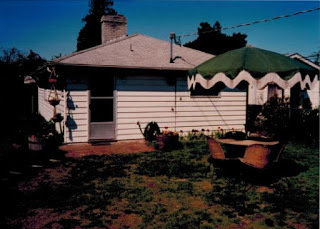 In the 1980s my aunt and uncle owned the cottage. When they offered to rent it to me at a price I couldn't refuse, I was ecstatic. Unlike my Santa Cruz cottage, this was a single-story, one-room structure although someone had put up walls to create a walk-in closet at the back of the large room, as well as a bedroom to hold a twin bed, a tiny bathroom, and a galley kitchen with a washing machine at the front end. After the noise of the Beacon Hill apartment, the spacious green yard pulled at my heart. When I moved in, there was only one door. You entered past the washing machine and through the kitchen to the large living room. Over time my uncle added a wood-burning stove and a second door—sliding glass.
In the 1980s my aunt and uncle owned the cottage. When they offered to rent it to me at a price I couldn't refuse, I was ecstatic. Unlike my Santa Cruz cottage, this was a single-story, one-room structure although someone had put up walls to create a walk-in closet at the back of the large room, as well as a bedroom to hold a twin bed, a tiny bathroom, and a galley kitchen with a washing machine at the front end. After the noise of the Beacon Hill apartment, the spacious green yard pulled at my heart. When I moved in, there was only one door. You entered past the washing machine and through the kitchen to the large living room. Over time my uncle added a wood-burning stove and a second door—sliding glass. I started flower gardens with plants and advice from Tony, my elderly neighbor. I explored the neighborhood: my father's childhood home only a block away, hilltop vistas of Puget Sound and the Olympic Mountains, the deep ravine and tangled trails of Schmitz Park, the West Seattle Junction. I imagined my father as a little boy, later a young man, walking the same streets and park paths. I saw my mother and father, young lovers, sharing ice cream cones from Husky Deli and throwing stones on Alki Beach. I'd found my roots, but I wasn't home yet.
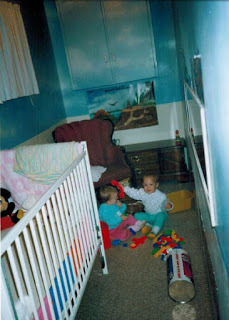 The cottage witnessed the demise of my first marriage. Our love could not sustain his comings and goings - Mexico City to Seattle to Mexico City to Seattle. We grew apart and went our separate ways. The cottage also witnessed the joys and fears of new love. When Tom entered my life, we got rid of my twin bed in the tiny bedroom and moved a large futon sofa into the living room. When I found myself pregnant, Tom painted fluffy white clouds on the closet walls, a bright yellow sun on the ceiling, and we had a nursery. When Baby Erin began to walk, he built a cement block and two-by-four fence around the wood burning stove.
The cottage witnessed the demise of my first marriage. Our love could not sustain his comings and goings - Mexico City to Seattle to Mexico City to Seattle. We grew apart and went our separate ways. The cottage also witnessed the joys and fears of new love. When Tom entered my life, we got rid of my twin bed in the tiny bedroom and moved a large futon sofa into the living room. When I found myself pregnant, Tom painted fluffy white clouds on the closet walls, a bright yellow sun on the ceiling, and we had a nursery. When Baby Erin began to walk, he built a cement block and two-by-four fence around the wood burning stove.
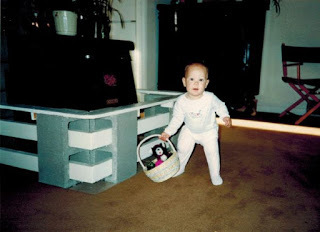 It all happened so fast. One day I was an expat in Mexico City, the next I was back in Seattle. I found work, faced unthinkable pain of family tragedy, completed my Master's degree, found better work, divorced, remarried, gave birth, and was overcome by fear that the fragile joy, the comfort and peace, I was feeling would disappear, that I would awaken one morning to an empty cottage, that Erin and Tom were nothing more than a fantasy.
It all happened so fast. One day I was an expat in Mexico City, the next I was back in Seattle. I found work, faced unthinkable pain of family tragedy, completed my Master's degree, found better work, divorced, remarried, gave birth, and was overcome by fear that the fragile joy, the comfort and peace, I was feeling would disappear, that I would awaken one morning to an empty cottage, that Erin and Tom were nothing more than a fantasy. I didn't realize it at the time, but looking back I see that I'd begun to find the home I was seeking. I didn't yet have the self-confidence or trust I needed, the sense of self essential to feel whole, to accept and give unconditional love, to be home. But I was getting closer.
The fantasy was real, and my new family had outgrown the tiny cottage. It was time to buy a house of our own, a place large enough for a family of three. When we made the decision, when we found a house only blocks away from our tiny rental, when our monthly living expenses tripled with a mortgage payment, I was filled with terror. But we packed our few belongings, said good bye to our beloved apple trees, and moved down the hill to a house of our own, uncertain what the future would bring.
That was 1991. Since then the old orchard lot has been divided and the ancient trees torn out. Another house, a very large house, has been built on the front two-thirds of the property leaving the cottage seemingly unchanged at the back alley but for a paint job. Is it still a rental? Do my husband's murals still decorate the walls? Was the lilac bush that bloomed late the year of Erin's birth also sacrificed in the name of development? I do not know.
Published on June 30, 2015 09:23
June 25, 2015
Finding Home: Other Voices
Today author Anesa Miller joins us with her poignant essay, "Now I Lay You Down to Sleep."
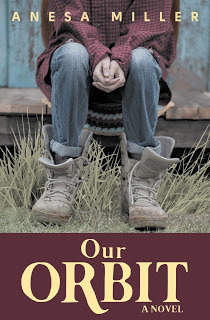
My daughter, Ruth, and I have come to my old hometown. I'm clutching a fringed leather pouch that my mother gave me not long before she died. I was sixteen then, five years younger than Ruth is now. It has often pained me that my daughter never knew her grandparents, so I’m glad she can be with me today as we try to draw close to the older generation. We find a sheltered spot behind a willow thicket to screen us from the eyes of our hosts, parents of a girlhood friend. Not that they would disapprove. I just could not explain what we’re about to do.
From the pouch, I pour handfuls of dry herbs—sweetgrass, cedar, and sage—into a handy aluminum pie plate. Ruth strikes a match. When flame rises, I feed it several old, yellowed letters in long envelopes. The paper curls and blisters like swatches of black silk under a hot iron. Wind whips the fire until it threatens to overflow the pan. I wish it would flare up to warm a gathering of fellow mourners, or rage out of control and destroy unwanted memories. But when Ruth says, “Whoa—it’s really burning!” my fantasies disperse, leaving gratitude for her presence: My girl, my firstborn.
I cover the flame with an abalone shell. When all is blackened and reduced, the ash fits into the shell perfectly. I let things cool and replace them in the pouch. Now we’re ready for a visit that has my knees quaking beneath me…
More than eight months have passed since my father died. I couldn't come here at that time. There was no funeral. He had lost touch with everyone he once held dear. But it wasn’t the lack of ceremony or absence of relatives that kept me away.
There's a stepmother. An old friend has persuaded her to vacate my childhood home for a few hours today. To me, this woman is a purely destructive force. Two years after my mother died, she entered my life and convinced me there is more than myth to the fairytale villainess. Does some deep need make her drive out the first wife’s fledglings so she can claim the man and his property for her own?
I often wondered if an unspoken disappointment poisoned the waters. My stepmother’s age was never mentioned, but she looked at least ten years younger than my father. Maybe she hoped for a baby. If so, it fell either to nature or my father himself (who, my mother once confided, was a hesitant dad the first time around) to crush that dream.
All I know for certain is that my stepmother’s tolerance of me collapsed on the sole occasion when I visited after my marriage. I was eight months pregnant. My father sat passive as “some deaf Buddha” (as I wrote soon after) while she harangued me and my bewildered young husband on the weak minds of women who "crave motherhood." “Don’t expect help from us,” she declared. “I won’t play your Earth Mother game.”
Twenty years passed before I heard from her again.
Then last spring, I recognized her handwriting on an envelope in the mail. Inside was a photo of my father, shriveled and vacant, dated one month previous. Folded with this picture was a newspaper clipping. His obituary from the previous week. There was no note of any kind.
While my mother lived, she moderated my father’s reclusive tendency. Once she was gone, coworkers came to regard him as a snob who couldn’t be bothered to chat about cars or sports teams. My stepmother was not a good influence. She once accused me of climbing trees to spy through her bedroom window. She accused my brother of sending threatening letters that mysteriously vanished when their existence was questioned. My father accepted her paranoia. Barriers grew that no old friend could breach, and they descended into a follie à deux.
…My daughter and I arrive at the house where I grew up.
My head is light, almost spinning. My hands tingle. I imagine if my stepmother were late departing, I might rip out handfuls of her hair. Break into furious shrieks. Some say extremes of self-expression are therapeutic, but I don't want my daughter to witness them. To think that Ruth was in my womb when I last stepped up this walkway and through these doors—!
I grip her hand.
We walk through the house. I won’t dwell on the rooms—every inch familiar as if the very boards could recognize and welcome me. I see many of my mother’s things, absorbed into the current decor, as if my heart might conjure her at any moment…
More important to me is a walk outside. We visit each tree that I know from my childhood and find a tangle of vines that used to be a garden. Stone paths my parents laid as young homeowners show through fallen leaves. I've told Ruth how I loved to play all over this yard. I've shown her photos from those days so she understands where we are: my mother’s garden and also her grave, where my father and I buried her ashes long years ago.
Here, I walk in a circle and pour out the ashes of my father’s letters. Letters in which he refused, time after time, to see me without his wife present, or to be any part of my life other than a silent absence. “I will fight no more forever.” My struggle, whether for love or revenge, is now at an end.
On an ancient rail-tie bench, I sit—fellow survivors in a corner of the garden. The day has turned windy. Overgrown grass shivers, and Ruth takes refuge in our rental car. A grade-school song comes to mind, and I sing,
Like an eagle flying in the sun, I fly free from sorrow. Like a deer running on the plain, I run to tomorrow…
That is when I see my father, clear as a cloud in the sky—the way he looked, fit and cheerful, when we used to take long walks together. Back when I was a girl, and he was still the perfect dad. He turns to me and smiles, glad to welcome me home after a ramble.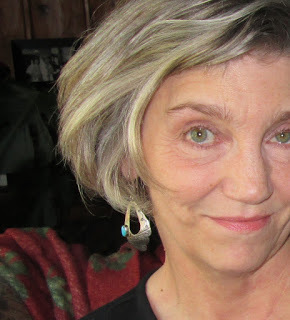 Anesa Miller is a native of Wichita, Kansas. Her novel, Our Orbit, was just released this month from Booktrope Publishing. The passage included here is adapted from her book To Boldly Go: Essays for the Turning Years (2013, Artisan Reader).www.AnesaMiller.comhttp://www.anesamiller.com/?cat=2Facebook: https://www.facebook.com/anesamillerauthorTwitter: https://twitter.com/anesam98Amazon: http://ow.ly/N2yWj
Anesa Miller is a native of Wichita, Kansas. Her novel, Our Orbit, was just released this month from Booktrope Publishing. The passage included here is adapted from her book To Boldly Go: Essays for the Turning Years (2013, Artisan Reader).www.AnesaMiller.comhttp://www.anesamiller.com/?cat=2Facebook: https://www.facebook.com/anesamillerauthorTwitter: https://twitter.com/anesam98Amazon: http://ow.ly/N2yWj

My daughter, Ruth, and I have come to my old hometown. I'm clutching a fringed leather pouch that my mother gave me not long before she died. I was sixteen then, five years younger than Ruth is now. It has often pained me that my daughter never knew her grandparents, so I’m glad she can be with me today as we try to draw close to the older generation. We find a sheltered spot behind a willow thicket to screen us from the eyes of our hosts, parents of a girlhood friend. Not that they would disapprove. I just could not explain what we’re about to do.
From the pouch, I pour handfuls of dry herbs—sweetgrass, cedar, and sage—into a handy aluminum pie plate. Ruth strikes a match. When flame rises, I feed it several old, yellowed letters in long envelopes. The paper curls and blisters like swatches of black silk under a hot iron. Wind whips the fire until it threatens to overflow the pan. I wish it would flare up to warm a gathering of fellow mourners, or rage out of control and destroy unwanted memories. But when Ruth says, “Whoa—it’s really burning!” my fantasies disperse, leaving gratitude for her presence: My girl, my firstborn.
I cover the flame with an abalone shell. When all is blackened and reduced, the ash fits into the shell perfectly. I let things cool and replace them in the pouch. Now we’re ready for a visit that has my knees quaking beneath me…
More than eight months have passed since my father died. I couldn't come here at that time. There was no funeral. He had lost touch with everyone he once held dear. But it wasn’t the lack of ceremony or absence of relatives that kept me away.
There's a stepmother. An old friend has persuaded her to vacate my childhood home for a few hours today. To me, this woman is a purely destructive force. Two years after my mother died, she entered my life and convinced me there is more than myth to the fairytale villainess. Does some deep need make her drive out the first wife’s fledglings so she can claim the man and his property for her own?
I often wondered if an unspoken disappointment poisoned the waters. My stepmother’s age was never mentioned, but she looked at least ten years younger than my father. Maybe she hoped for a baby. If so, it fell either to nature or my father himself (who, my mother once confided, was a hesitant dad the first time around) to crush that dream.
All I know for certain is that my stepmother’s tolerance of me collapsed on the sole occasion when I visited after my marriage. I was eight months pregnant. My father sat passive as “some deaf Buddha” (as I wrote soon after) while she harangued me and my bewildered young husband on the weak minds of women who "crave motherhood." “Don’t expect help from us,” she declared. “I won’t play your Earth Mother game.”
Twenty years passed before I heard from her again.
Then last spring, I recognized her handwriting on an envelope in the mail. Inside was a photo of my father, shriveled and vacant, dated one month previous. Folded with this picture was a newspaper clipping. His obituary from the previous week. There was no note of any kind.
While my mother lived, she moderated my father’s reclusive tendency. Once she was gone, coworkers came to regard him as a snob who couldn’t be bothered to chat about cars or sports teams. My stepmother was not a good influence. She once accused me of climbing trees to spy through her bedroom window. She accused my brother of sending threatening letters that mysteriously vanished when their existence was questioned. My father accepted her paranoia. Barriers grew that no old friend could breach, and they descended into a follie à deux.
…My daughter and I arrive at the house where I grew up.
My head is light, almost spinning. My hands tingle. I imagine if my stepmother were late departing, I might rip out handfuls of her hair. Break into furious shrieks. Some say extremes of self-expression are therapeutic, but I don't want my daughter to witness them. To think that Ruth was in my womb when I last stepped up this walkway and through these doors—!
I grip her hand.
We walk through the house. I won’t dwell on the rooms—every inch familiar as if the very boards could recognize and welcome me. I see many of my mother’s things, absorbed into the current decor, as if my heart might conjure her at any moment…
More important to me is a walk outside. We visit each tree that I know from my childhood and find a tangle of vines that used to be a garden. Stone paths my parents laid as young homeowners show through fallen leaves. I've told Ruth how I loved to play all over this yard. I've shown her photos from those days so she understands where we are: my mother’s garden and also her grave, where my father and I buried her ashes long years ago.
Here, I walk in a circle and pour out the ashes of my father’s letters. Letters in which he refused, time after time, to see me without his wife present, or to be any part of my life other than a silent absence. “I will fight no more forever.” My struggle, whether for love or revenge, is now at an end.
On an ancient rail-tie bench, I sit—fellow survivors in a corner of the garden. The day has turned windy. Overgrown grass shivers, and Ruth takes refuge in our rental car. A grade-school song comes to mind, and I sing,
Like an eagle flying in the sun, I fly free from sorrow. Like a deer running on the plain, I run to tomorrow…
That is when I see my father, clear as a cloud in the sky—the way he looked, fit and cheerful, when we used to take long walks together. Back when I was a girl, and he was still the perfect dad. He turns to me and smiles, glad to welcome me home after a ramble.
 Anesa Miller is a native of Wichita, Kansas. Her novel, Our Orbit, was just released this month from Booktrope Publishing. The passage included here is adapted from her book To Boldly Go: Essays for the Turning Years (2013, Artisan Reader).www.AnesaMiller.comhttp://www.anesamiller.com/?cat=2Facebook: https://www.facebook.com/anesamillerauthorTwitter: https://twitter.com/anesam98Amazon: http://ow.ly/N2yWj
Anesa Miller is a native of Wichita, Kansas. Her novel, Our Orbit, was just released this month from Booktrope Publishing. The passage included here is adapted from her book To Boldly Go: Essays for the Turning Years (2013, Artisan Reader).www.AnesaMiller.comhttp://www.anesamiller.com/?cat=2Facebook: https://www.facebook.com/anesamillerauthorTwitter: https://twitter.com/anesam98Amazon: http://ow.ly/N2yWj
Published on June 25, 2015 08:40
June 23, 2015
Finding Home: Beacon Hill via Issaquah
After a brief break, I'm back to continue this mini-memoir series that began on March 5, 2015 with this invitation: "In celebration of its upcoming publication, I'll be sharing a series of posts exploring my own search for home—the memories and emotions around each of the places I've lived. I hope you'll join me on this journey." That invitation stands! Also, don't miss the companion series, Finding Home: Other Voices every Thursday.
It was summer 1984. I was back in the Issaquah Valley, now in the third house my father built there, a house I'd only visited on rare occasion during the fourteen years since I'd graduated high school. It was no more home to me than the house we'd moved into the summer before my senior year of high school. It was spacious and painfully empty with all nine children grown and gone. I could not live there. I needed a place of my own, a place to build a life with my Mexican husband.
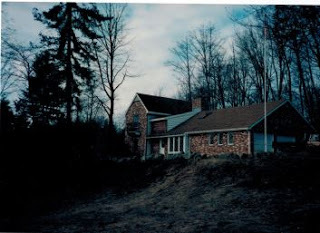 I found an apartment on Beacon Hill along with an ESL teaching position at the same school where I'd worked as a resident assistant years earlier when I studied at Seattle University. The building was a brick three-story walk-up. I was on the top floor, my living room and bedroom windows facing the four way stop and the fire station just across the street.
I found an apartment on Beacon Hill along with an ESL teaching position at the same school where I'd worked as a resident assistant years earlier when I studied at Seattle University. The building was a brick three-story walk-up. I was on the top floor, my living room and bedroom windows facing the four way stop and the fire station just across the street. The one-bedroom apartment felt massive by comparison to my tiny place in Mexico City. There was a separate kitchen with glass French doors, a large walk-in closet, and an equally astounding bathroom. Despite the street noise and sirens, I was in paradise. The only fault in my new paradise was the lack of a shower. The bathroom had a dramatic black and white tile floor and a large cast iron bathtub, but no shower. A fault my father quickly remedied one Saturday morning shortly after I moved in when he and Mom showed up ladened with copper piping, a shower head, and a solder iron. "Put on the coffee, Honey," he told me, and he set to work.
Like so many things I failed to photograph, I don't have a picture of the shower Dad created for me that day, but the memories of his desire to remedy my problem, to make me comfortable, to welcome me back into the family-fold in the only way he knew how - with his creativity and labor - have stayed with me. If only all problems were so easily solved.
I collected used furniture and pulled together a comfortable nest for my husband and me, but truth was, he was spending less time in Seattle than back in Mexico City where he worked to finish a university degree. In his absence, I struggled to understand the home and family I had abandoned, and I did so under a veil of tragedy: my youngest sister was missing and presumed dead. I spent time with my parents and each of my siblings still living in the area in an attempt to understand the past and build a new future, but the past was shadowed and the future as unknown as my sister's whereabouts or the identity of her killer. Still, my parents and siblings seemed determined to show me they were pleased I'd returned "home." The problem was, I still hadn't figured out what that meant. Much of the time I felt like a stranger going through the motions of family, torn between my Issaquah Valley roots with my first family and the family I had begun to build in Mexico City. I spent hours alone in my Beacon Hill apartment trying to figure out where I belonged.
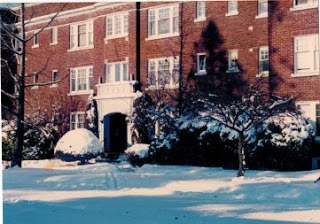 It was in that spacious living room on the rust brown velour sofa I'd scavenged from the basement garage that a social worker told me the words I could never be prepared to hear, "Your sister's remains have been found."
It was in that spacious living room on the rust brown velour sofa I'd scavenged from the basement garage that a social worker told me the words I could never be prepared to hear, "Your sister's remains have been found."I remember little else. I don't know how long I stayed on the third floor of that beautiful old brownstone across from the fire station in an apartment that was noisier than my place in the heart of Mexico City. I don't remember if I broke the lease or stayed six months. I only remember my aunt contacting me to offer a small cottage in West Seattle at a rental rate so low I couldn't refuse. Or maybe it wasn't the price at all. Maybe I was just running from more memories and pain than I could handle.
Published on June 23, 2015 08:06
June 22, 2015
What a Week!
Spring quarter and the academic year ended last Monday as I taught my ESL students how to register for summer quarter while secretly rejoicing my own upcoming freedom. Don't get me wrong. I love to teach. But summer is when I become a fulltime writer. A time I cherish.
On Tuesday I arrived with time to spare before my Memoir Writing Workshop at the Duvall Library. I came across this bench as I wandered about town and wondered how the authors would feel about the current employment of their hard-earned words.
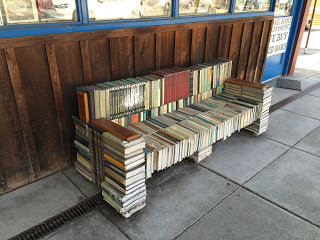
I 'd never taught a library workshop. I didn't anticipate the friendly support of librarian Kathleen O'Keeffe, or the serious determination of the nine women who participated, or that I'd fail to use the final version of my PowerPoint presentation. A fact that woke me at 5:30 a.m. the following morning.
The bulk of the week was spent on CreateSpace, culminating Friday with the publication of the last of a dozen short books in easy English for adults. Pamela Hobart Carter and I are pleased to share these books with new readers and educators through No Talking Dogs Press. Our website is still under construction with titles, links and curriculum yet to add, but you can find all 12 books on Amazon under Pamela Hobart Carter or Arleen Williams. If you work with ESL or ABE populations, or know someone who does, I hope you'll share this new resource.
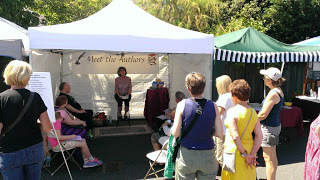
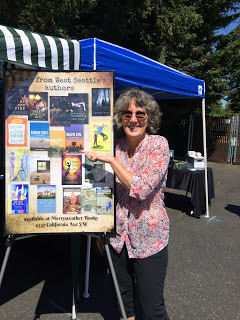 When Saturday rolled around, I was at the Morgan Community Festival in West Seattle where eleven local authors shared their work in a series of readings throughout the day. Many thanks to Alice Kuder for spearheading this event and to Merryweather Books for being on hand to sell our work.
When Saturday rolled around, I was at the Morgan Community Festival in West Seattle where eleven local authors shared their work in a series of readings throughout the day. Many thanks to Alice Kuder for spearheading this event and to Merryweather Books for being on hand to sell our work.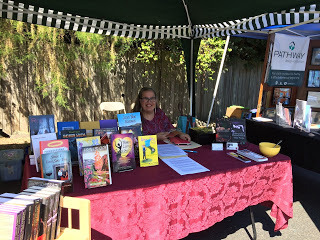 Yesterday was Solstice and Father's Day. For my family, it was a day of morning Dim Sum and afternoon boating in the Seattle sunshine. It was the kind of day I dream of during the long gray months of winter: a day of family and relaxation, a day to remember how grateful I am for this life I lead.
Yesterday was Solstice and Father's Day. For my family, it was a day of morning Dim Sum and afternoon boating in the Seattle sunshine. It was the kind of day I dream of during the long gray months of winter: a day of family and relaxation, a day to remember how grateful I am for this life I lead.
Published on June 22, 2015 11:19
June 18, 2015
Finding Home: Other Voices
Today author Patricia Mann joins us with a story of finding home quite unlike any other I've had the pleasure of sharing with you.
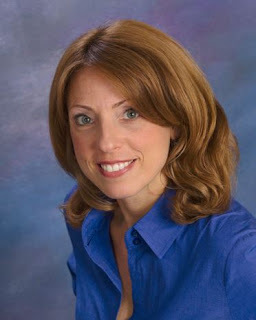
I have a recurring nightmare somewhat regularly. My husband tells me that we can’t afford our house anymore and we have to live in a tiny one-bedroom apartment with our two sons and two dogs. I am inconsolable. I beg him to figure out a way to keep our house but he assures me that it’s not possible. When I wake up to realize that it was just a dream, yet again, I feel incredibly grateful for my home and wander through every room appreciating it anew. It’s a modest ranch home in Southern California but we’re very happy in it and I finally have the backyard pool I always dreamed of having while I was growing up in New York.
It’s strange that my dreams point to a strong attachment to a physical home. When I’m conscious I will tell you that I feel no such attachment. I prefer to believe that the moment I lost my home and everything in it in an instant, I was spiritually freed from the suffering that Buddhists say is caused by worldly desires.
On the evening of Sunday, January 16, 1994, I was eager to greet my husband of five months after his weekend away. I proudly showed him all that I had accomplished while he was gone, having spent the entire time cleaning and organizing our apartment. We had a lovely dinner and went to sleep in each other’s arms.
At 4:30 a.m. Monday, January 17, we awoke to the sounds of furniture slamming onto floors, glass shattering, and buildings caving in. How could we have known when we closed our innocent young eyes to rest that we were right on top of what would become the epicenter of the infamous Northridge earthquake?
Our bed became a roller coaster, tossing us up and down and side to side. We rode as one, holding onto each other tight, limbs intertwined to keep us together. Certain of our imminent death, as we felt the ground beneath us moving down into the floor below, time seemed to stop. We were able to say so much to each other – how much we loved each other and how thankful we were for the life we had shared.
Suddenly, everything was silent and still, except for the creaking sounds of debris settling into place. To our surprise we were alive and unharmed. Our bedroom was covered in piles of broken objects and fallen furniture, with our pet parrot cut and bleeding in her cage, far from where it was supposed to be.
Huddled out on the street with neighbors and friends as the sun rose, with sirens blaring and desperate people asking for help locating missing loved ones, the reality began to set in. Still, it would take some time for my brain to process what my eyes saw - the large numbers of our street address, which used to sit above the front doorway to the building, crumpled to the ground, along with the first floor of our building.
Our second story had collapsed onto cars in a ground level parking garage, thankfully. No one we knew died. Those in the building right next door were not so lucky. Fifteen people in apartments on the ground floor were crushed to death. I remember the news reporters running around with microphones in all our faces. I heard one exclaim, “over there… someone’s crying… get her on tape, quick.”
We hadn’t expected our building to be condemned so quickly. There was no going back in. We lost everything. It was just our injured parrot and us against the world. We were homeless and owned nothing but the clothes on our back and it didn’t matter at all. It didn’t matter because we were alive. It also didn’t matter because it took some time to find out if our loved ones were alive. Landlines didn’t work and we didn’t have cell phones back then. We were able to confirm that my husband’s family was fine right away because they were nearby, but the route to my parents’ home was blocked by a raging fire. I had no way to know if they were alive or not, for hours.
Finally discovering that everyone I loved was safe felt like the greatest gift I could ever have been given. Yes, we lost every wedding gift, every possession. Yes, I had to replace an entire wardrobe piece by piece. Yes, we had to live with my parents for six months to rebuild our lives before we had the means to strike out on our own again. But none of that bothered me for a second. I knew what it felt like to be certain of my death. Strangely, I felt no fear in that moment. It was complete surrender. For a long time after, material things didn’t matter to me at all. And I know they mean something different to me now than they would have had I not had that experience.
Home is not the structure you live in. It’s the life you create with the people and pets who share it with you or visit you. Home is not the knick-knacks and sentimental gifts that you’ve held onto for years. It’s the safe space you come Before my earthquake experience, I would have told you that being forced to leave my friends and family to move from New York to California at fourteen years old was my most life-changing experience of trying to find home. I was despondent and felt lost for some time. But now, though I am deeply saddened by the loss of the 57 people who died in the earthquake… I can honestly say that if it had to happen, given the choice, I would want to be right where I was at 4:30 am on January 17, 1994, and wouldn’t change a thing about my experience. I found my true home that day – with my husband and family, no matter where we might reside or what possessions we might own.
Patricia Mann is a university professor and consultant. She lives in California with her husband, their two kids, and two sweet, silly dogs.
Website: http://www.patriciamann.meTwitter: https://twitter.com/PatriciaMann11Facebook author page: https://www.facebook.com/pages/Patricia-Mann/325125214262516Pinterest: http://www.pinterest.com/patriciamann14/

I have a recurring nightmare somewhat regularly. My husband tells me that we can’t afford our house anymore and we have to live in a tiny one-bedroom apartment with our two sons and two dogs. I am inconsolable. I beg him to figure out a way to keep our house but he assures me that it’s not possible. When I wake up to realize that it was just a dream, yet again, I feel incredibly grateful for my home and wander through every room appreciating it anew. It’s a modest ranch home in Southern California but we’re very happy in it and I finally have the backyard pool I always dreamed of having while I was growing up in New York.
It’s strange that my dreams point to a strong attachment to a physical home. When I’m conscious I will tell you that I feel no such attachment. I prefer to believe that the moment I lost my home and everything in it in an instant, I was spiritually freed from the suffering that Buddhists say is caused by worldly desires.
On the evening of Sunday, January 16, 1994, I was eager to greet my husband of five months after his weekend away. I proudly showed him all that I had accomplished while he was gone, having spent the entire time cleaning and organizing our apartment. We had a lovely dinner and went to sleep in each other’s arms.
At 4:30 a.m. Monday, January 17, we awoke to the sounds of furniture slamming onto floors, glass shattering, and buildings caving in. How could we have known when we closed our innocent young eyes to rest that we were right on top of what would become the epicenter of the infamous Northridge earthquake?
Our bed became a roller coaster, tossing us up and down and side to side. We rode as one, holding onto each other tight, limbs intertwined to keep us together. Certain of our imminent death, as we felt the ground beneath us moving down into the floor below, time seemed to stop. We were able to say so much to each other – how much we loved each other and how thankful we were for the life we had shared.
Suddenly, everything was silent and still, except for the creaking sounds of debris settling into place. To our surprise we were alive and unharmed. Our bedroom was covered in piles of broken objects and fallen furniture, with our pet parrot cut and bleeding in her cage, far from where it was supposed to be.
Huddled out on the street with neighbors and friends as the sun rose, with sirens blaring and desperate people asking for help locating missing loved ones, the reality began to set in. Still, it would take some time for my brain to process what my eyes saw - the large numbers of our street address, which used to sit above the front doorway to the building, crumpled to the ground, along with the first floor of our building.
Our second story had collapsed onto cars in a ground level parking garage, thankfully. No one we knew died. Those in the building right next door were not so lucky. Fifteen people in apartments on the ground floor were crushed to death. I remember the news reporters running around with microphones in all our faces. I heard one exclaim, “over there… someone’s crying… get her on tape, quick.”
We hadn’t expected our building to be condemned so quickly. There was no going back in. We lost everything. It was just our injured parrot and us against the world. We were homeless and owned nothing but the clothes on our back and it didn’t matter at all. It didn’t matter because we were alive. It also didn’t matter because it took some time to find out if our loved ones were alive. Landlines didn’t work and we didn’t have cell phones back then. We were able to confirm that my husband’s family was fine right away because they were nearby, but the route to my parents’ home was blocked by a raging fire. I had no way to know if they were alive or not, for hours.
Finally discovering that everyone I loved was safe felt like the greatest gift I could ever have been given. Yes, we lost every wedding gift, every possession. Yes, I had to replace an entire wardrobe piece by piece. Yes, we had to live with my parents for six months to rebuild our lives before we had the means to strike out on our own again. But none of that bothered me for a second. I knew what it felt like to be certain of my death. Strangely, I felt no fear in that moment. It was complete surrender. For a long time after, material things didn’t matter to me at all. And I know they mean something different to me now than they would have had I not had that experience.
Home is not the structure you live in. It’s the life you create with the people and pets who share it with you or visit you. Home is not the knick-knacks and sentimental gifts that you’ve held onto for years. It’s the safe space you come Before my earthquake experience, I would have told you that being forced to leave my friends and family to move from New York to California at fourteen years old was my most life-changing experience of trying to find home. I was despondent and felt lost for some time. But now, though I am deeply saddened by the loss of the 57 people who died in the earthquake… I can honestly say that if it had to happen, given the choice, I would want to be right where I was at 4:30 am on January 17, 1994, and wouldn’t change a thing about my experience. I found my true home that day – with my husband and family, no matter where we might reside or what possessions we might own.

Patricia Mann is a university professor and consultant. She lives in California with her husband, their two kids, and two sweet, silly dogs.
Website: http://www.patriciamann.meTwitter: https://twitter.com/PatriciaMann11Facebook author page: https://www.facebook.com/pages/Patricia-Mann/325125214262516Pinterest: http://www.pinterest.com/patriciamann14/
Published on June 18, 2015 08:33
June 16, 2015
How Many Authors Can Fit in a West Seattle Festival?
One of the many things I love about the Pacific Northwest is the abundance of gifted writers who also call it home. Is it the long, gray winters with months of fog and drizzle that draw writers here? Or perhaps the isolation afforded by the abundance of island and wilderness living? Who knows, but for whatever the reason, the area is full of writers. Last month I was invited to a meet-and-greet of West Seattle authors, all living within a radius of a few miles. What fun!
Alice Kuder, Dora-Faye Hendricks, and others have pulled together this diverse group. They've organized an authors' booth for the Morgan Community Festival for a day of readings and Q&A, of meeting readers and other writers, of talking stories and sharing books. Merryweather Books will be on site with books available for purchase.
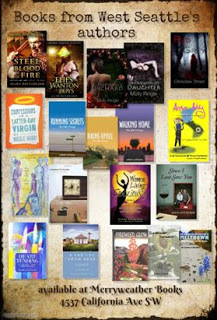 If you're in the Seattle area, venture across the bridge and join us. There will be continuous 15-minute author appearances throughout the day. I'll be reading at 1:30 and again at 2:30. I hope to see you there!Meet the Authors!10th Annual Morgan Community Festival6413 California Ave SW
If you're in the Seattle area, venture across the bridge and join us. There will be continuous 15-minute author appearances throughout the day. I'll be reading at 1:30 and again at 2:30. I hope to see you there!Meet the Authors!10th Annual Morgan Community Festival6413 California Ave SWSeattle, WA
Published on June 16, 2015 07:56
June 11, 2015
Finding Home: Other Voices
Today I'm pleased to share the thoughts of author, Brandy Jellum, as she explores: What’s in a Home?
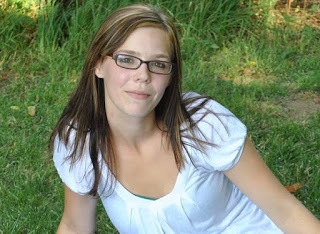 To some, a home is simply a building structure with four walls and a roof. A place where you lay your head at night, a place to eat, shower, etc. For me, it’s so much more than that. It’s like the saying goes: “Home is where the heart is.” That couldn’t be truer for me.
To some, a home is simply a building structure with four walls and a roof. A place where you lay your head at night, a place to eat, shower, etc. For me, it’s so much more than that. It’s like the saying goes: “Home is where the heart is.” That couldn’t be truer for me. I used to be one of those people, the kind that was superficial, and very materialistic. I was ashamed of where I came from, more importantly, I was ashamed of who I had become by the time I was in high school. I thought the only thing that matter was the kind of clothes I wore and the more popular I was, the happier I’d be. And I did such a fabulous job in tricking myself into believing that I had everything I wanted and more.But I was wrong. As time passed, as I got older, I realized how unhappy I was. By my senior year, I was on my seventh high school. I bounced from home to home, from family member to family member, between friends, and everyone in-between. I didn’t know then what it was I was looking for and it wasn’t until I was nineteen years old and staring down into the most crystal blue eyes I had ever seen that I knew – I was looking for a place to call home. It didn’t matter that I was all alone, about to trek into unfamiliar territory known as parenthood, and could hardly manage to care for myself. How was I supposed to care for a baby if I couldn’t take care of myself? But it didn’t matter, I was going to do anything for that little girl. From that day, I stopped searching, I had everything I needed. Or so I thought. Then I married my husband, gained two more beautiful children to help raise, and went on to have another one.The one thing I have learned along the way is this: it doesn’t matter where life takes me as long as I have the five of them, I’ll always be home. Home to me isn’t about what kind of house you live in, be it a 5,000 sq. ft. house, a studio apartment, or the back of a van. A home is about what and who is in your heart. It’s to love and to be loved in return. Despite the wild curveballs life pitches at you, as long as you have the most important people with you, you’ll always see the brighter side of things no matter how dim life seems to be. Some days will be rougher than others, some may even seem hopeless, but if one was to stop for just a moment, remember the ones they have in their life, that person will experience an overwhelming feeling of comfort…that comfort to me is what represents home. The feeling that against all odds, one only has to look into their heart to find solid ground, to find peace, joy, happiness, all of the positive things one is supposed to feel, and if they can do that…then they are at home with themselves and the ones around them.
 Brandy's passion for writing began long before she actually sat down to write. As a child, she has had an obsession with reading, everything from the classic stories by Jane Austen to YA Fiction by Richelle Mead. Finally, in 2012, she decided to create her own stories for people to fall in love with. Brandy bounces back and forth writing both Romance and Young Adult Fiction (which is mainly just for fun).
Brandy's passion for writing began long before she actually sat down to write. As a child, she has had an obsession with reading, everything from the classic stories by Jane Austen to YA Fiction by Richelle Mead. Finally, in 2012, she decided to create her own stories for people to fall in love with. Brandy bounces back and forth writing both Romance and Young Adult Fiction (which is mainly just for fun).At the beginning of 2014, Brandy signed a contract with publishing company Booktrope. She is very excited about the next chapter of her life and cannot wait to share her books and passion with readers.
When she isn't writing, she can be found chasing after her husband, her four children and her black lab, Diesel. Or curled up on her favorite corner of the couch with her newest book.
Website: http://brandyjellumbooks.wordpress.comFacebook: https://www.facebook.com/BrandyJellumTwitter: @Brandy_Jellum
Published on June 11, 2015 06:49
June 9, 2015
Sailing into Memoir Writing
My first love, or rather my first love-hate relationship, was with my journal. I began writing in my late teens when my love of horses was replaced by self-doubt and angst as I left the family farm at 17. Love because it was my new friend. Hate because it was inescapable, the clingy friend who just won't leave you in peace, not even for a single day.
But I was no writer. It wasn't until 2002 at the ripe age of 48 when I stumbled on a connection between all those years of journaling and the art of memoir: a course description linking journals and memoirs in a non-threatening manner that appealed to my fragile soul. I enrolled in the year-long course in hopes of making sense of a life tangled by tragedy.
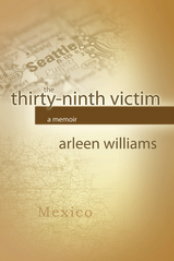 My first book, The Thirty-Ninth Victim (Blue Feather Books 2008, Booktrope re-pub TBA), and my second manuscript, Moving Mom(Booktrope pub date TBA), are both memoirs. Now, after completing The Alki Trilogy, I return to the world of memoir.
My first book, The Thirty-Ninth Victim (Blue Feather Books 2008, Booktrope re-pub TBA), and my second manuscript, Moving Mom(Booktrope pub date TBA), are both memoirs. Now, after completing The Alki Trilogy, I return to the world of memoir.In my new work-in-progress, I revisit my Mexico City years. A memoir, right? I'd like to include a dear friend's point-of-view because our stories blend, but she was lost to cancer. I cannot write her memoir, so her thoughts, her voice, her world view can only be fictionalized. Or, I must stick to my own.
As I embark on this new writing adventure, I hope you will join me. I'll be setting sail in Duvall, WA.What? No water, you say? We'll fictionalize water.
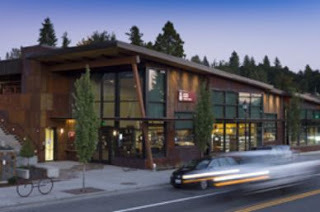 I'll be at the helm of a one-evening-only memoir writing adventure. Whether you are a new or experienced writer, bring your notebook and pen to this hands-on workshop. Learn how to turn off your internal editor to get your story on the page, decide how to organize your work, and even what to do with that completed manuscript. Welcome aboard!
I'll be at the helm of a one-evening-only memoir writing adventure. Whether you are a new or experienced writer, bring your notebook and pen to this hands-on workshop. Learn how to turn off your internal editor to get your story on the page, decide how to organize your work, and even what to do with that completed manuscript. Welcome aboard! Duvall Library
Memoir Writing Workshop
15508 Main Street NE
Duvall, WA 98019
425.788.1173
Tuesday, June 16, 2015
7:00 p.m. - 8:30 p.m.
Published on June 09, 2015 13:37
June 7, 2015
Thank You West Seattle!
How often do we have the opportunity to see folks from all aspects of our lives, every corner and crevice, come together and mingle in the same room?
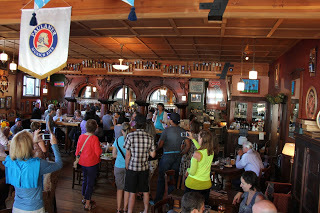 I was fortunate to have just that experience yesterday at the book release celebration for
Walking Home
and the completion of The Alki Trilogy.
I was fortunate to have just that experience yesterday at the book release celebration for
Walking Home
and the completion of The Alki Trilogy.
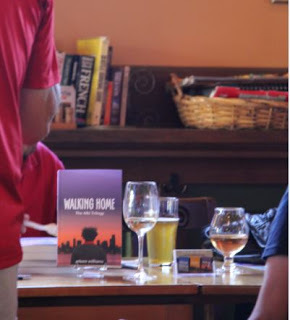 As I planned this event, I envisioned a community party with food from an ethnic restaurant. The Beveridge Place Pub was the perfect venue - a West Seattle icon with no food service at all! Owner Gary Sink invites his patrons to order food from neighboring restaurants. When I asked my students for recommendations, SabaEthiopian Cuisine was at the top of the list. They didn't disappoint.
As I planned this event, I envisioned a community party with food from an ethnic restaurant. The Beveridge Place Pub was the perfect venue - a West Seattle icon with no food service at all! Owner Gary Sink invites his patrons to order food from neighboring restaurants. When I asked my students for recommendations, SabaEthiopian Cuisine was at the top of the list. They didn't disappoint.
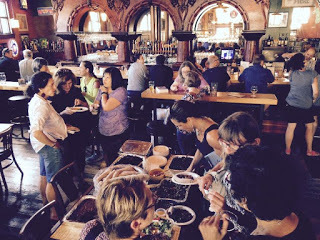
As I watched friends and strangers mingle and chat from the signing table at the side of the room, I thought about the groups we each have in our lives, and how rarely those groups intersect.
For me, I saw college colleagues and students - current and former. I saw old friends, friends I've known for over thirty years, friends from the Mother-Daughter book club formed when our 26-year-old daughters were in elementary school. I saw Biker Babes, the incredible women I cycle with and some who may decide to join us. I saw people I didn't know at all, others I'd met when posting flyers and handing out postcard invitations at the West Seattle Farmers' Market last Sunday. I saw family - husband, daughter and fiancé, sister - as well as friends who have become family. Sisters of the heart, you know who you are. And I saw writers, that special breed I am honored to one with, amazing creative souls who put stories on the page one letter, one syllable, a word, a sentence at a time.
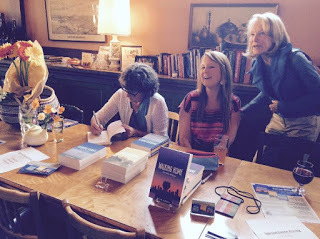
There were many folks who couldn't make it, my inbox flooded with regrets. Thank you. I understand. I wish you could have been there as well. Here's one from my dear friend, Luli Weatherwax, I'd like to share:
"... I did finish the third book and enjoyed it very much, my favorite of the three. I never read a trilogy before so it was very interesting when I finished to think back on all the characters and how much more I got to know them than I would have in a novel. I felt like I was saying good bye to friends when I finished the trilogy. The books also made me feel great about living in Seattle where we have the luck to meet so many people of different cultures. I always feel like I gave my kids such a gift to have them grow up with such diversity around them ..."
Yesterday was a blast, a blur, an event I will not forget. I am so grateful to all of you, those who made it and those who could not, for your ongoing support and readership.
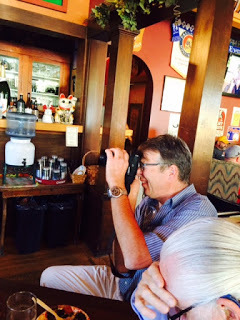
Published on June 07, 2015 20:17

